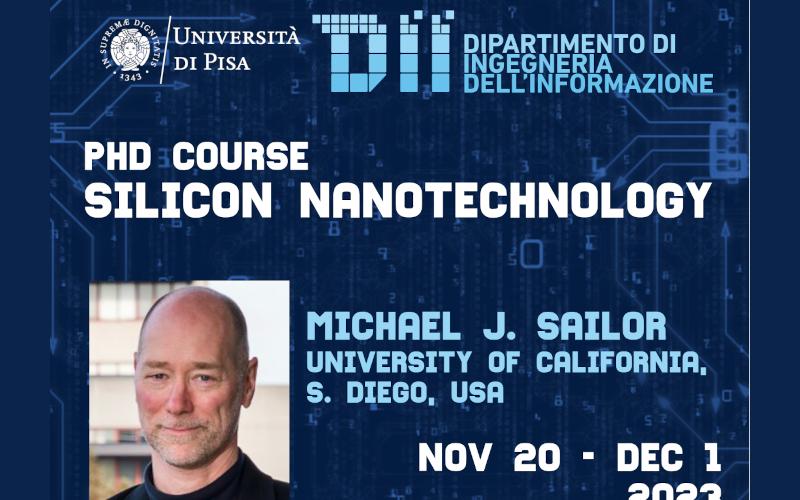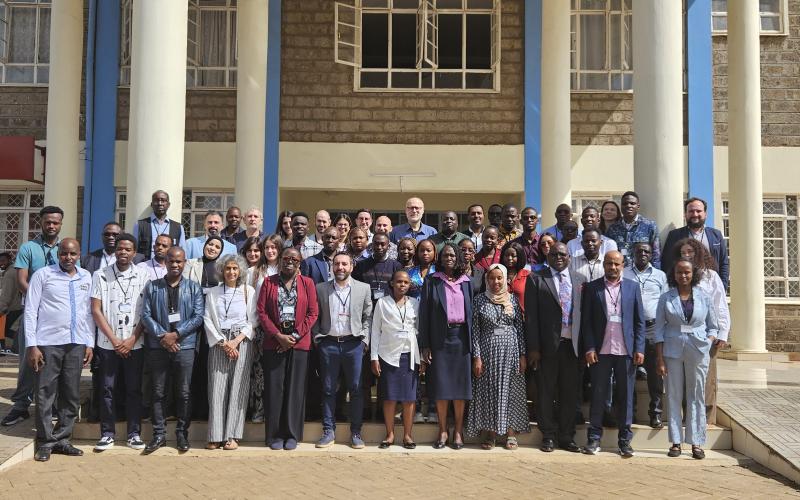In questi giorni il team di bioingegneri composto da Arti Ahluwalia, Carmelo De Maria e Chiara Belmonte si trova a Nairobi per tenere un corso intensivo nell'ambito del progetto Afra Moya, di cui il...
Leggi tuttoPhD Course - Silicon nanotechnology

Prof. M. J. Sailor, Univ. of California San Diego, USA
Hours:
20 hours (5 credits)
Room:
Aula Riunioni del Dipartimento di Ingegneria dell’Informazione, Via G. Caruso 16, Pisa - Ground Floor
To register to the course, click here
Short Abstract:
Immersive course focussed on the synthesis, properties, and applications of silicon-based nanomaterials. Among the applications discussed there are, medical applications of silicon nanostructures, including targeted drug delivery and in vivo systems, metal and polymeric composites with porous silicon, energy related materials including Li-ion anodes and thermoelectrics, optical biosensing and chemical sensing.
Course Contents in brief:
|
|
Lecture |
Instrumental Concepts |
|
1 |
Introduction to Porous Silicon properties and applications |
|
|
2 |
Semiconductor fundamentals |
X-ray diffraction, 4-point probe conductivity measurement |
|
3 |
Silicon electrochemistry and current-time-electrolyte relationships |
Porosimetry; Gravimetry |
|
4 |
Optical films and optical sensing |
Optical Reflectance Spectroscopy; Spectroscopic Liquid Infiltration Method |
|
5 |
Photonic crystals |
|
|
6 |
Quantum dots fundamentals |
Photoluminescence measurements; Quantum yield |
|
7 |
Silicon quantum dots |
Raman spectroscopy |
|
8 |
Silicon surface chemistry and characterization (1) |
FTIR spectroscopy; Contact angle measurement |
|
9 |
Silicon surface chemistry and characterization (2) |
X-ray fluorescence, TGA/DSC |
|
10 |
Biomedical applications (1): drug delivery with porous microparticles and nanoparticles |
Dynamic Light Scattering; Characterization of drug release profiles |
|
11 |
Biomedical applications (2): imaging and in vivo sensing with porous microparticles and nanoparticles |
Time-gated photoluminescence imaging; two-photon imaging; fluorescence imaging; photoacoustic imaging |
|
12 |
Metal and polymer composites |
|
|
13 |
Chemical and biochemical sensors |
|
|
14 |
Energy applications |
|
|
|
||
Schedule:
- 20/11/2023: 9:00-11:00
- 21/11/2023: 9:00-11:00
- 22/11/2023: 14:30-16:30
- 23/11/2023: 9:00-11:00
- 24/11/2023: 9:00-11:00
- 27/11/2023: 9:00-11:00
- 28/11/2023: 9:00-11:00
- 29/11/2023: 14:30-16:30
- 30/11/2023: 9:00-11:00
- 01/12/2023: 9:00-11:00



